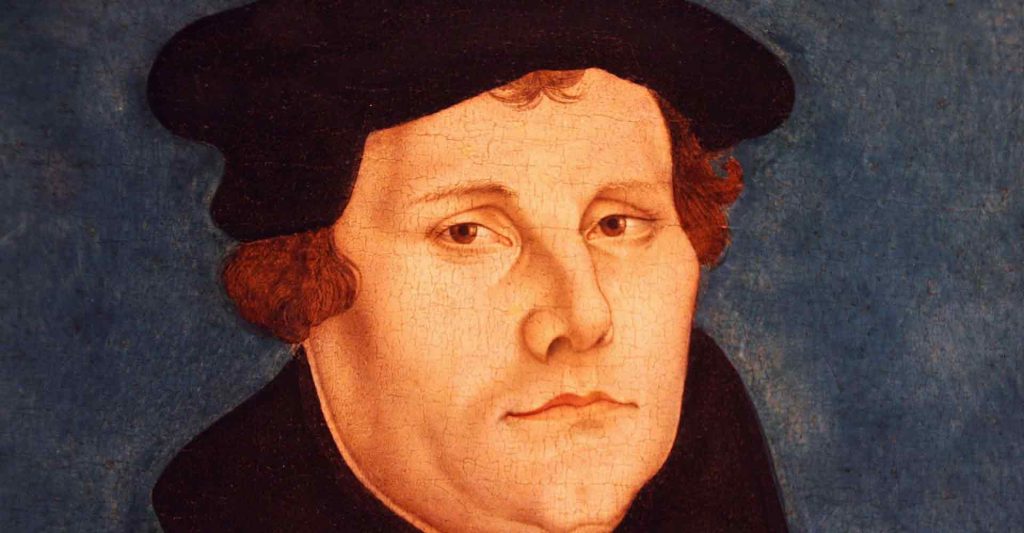
Is the Protestant revolution in the 16th century connected to the 20th-century sexual revolution in the U.S.?
By Deacon Frederick Bartels
3 October 2024
Yes. That conclusion is cogent and rational, founded on historical events. Here’s why:
The Protestant revolution was rooted in biblical relativism. It led to the notion that every individual has the final say on what the scriptures do or do not mean. Once that door was opened, nearly anything became fair game. The fact is, beliefs shape behavior. Consequences follow. The Protestant revolution created a societal upheaval with many negative moral consequences in the realm of human sexuality.
Let’s take a look at some of them:
Martin Luther denied five of the seven sacraments, which included his denial of Holy Orders and marriage as a sacrament instituted by Christ. He relegated marriage to the purview of the State. He soon left the priesthood and married a nun. In the wake of his sin, his intellect was darkened with respect to sexual morality. As a result, he soon approved of polygamy.
Against the Catholic Church’s constant teaching that the reality of marriage is a lifelong union between one man and one woman, Martin Luther wrote:
“I confess that I cannot forbid a person to marry several wives, for it does not contradict the Scripture. If a man wishes to marry more than one wife he should be asked whether he is satisfied in his conscience that he may do so in accordance with the word of God. In such a case the civil authority has nothing to do in the matter.” (quoted in Wikipedia, “Polygamy in Christianity,” sourced from: Luter, Martin. De Wette II, 459, ibid., pp. 329–330.)
Although most Protestant Christians do not approve of polygamy, Luther’s beliefs serve as an example of how biblical relativism leads into sexual immorality.
- Although the Catholic Church has consistently taught that the use of contraceptives in marriage to avoid pregnancy is sinful, the Anglican Lambeth conference in 1930 approved of their use. Soon after, the birth control pill was legalized in the U.S. in 1960. Today, the majority of Protestants approve of contraceptives.
- The approval of contraceptives divorced sex from procreation, and thus led to promiscuity, “free sex and love,” and an undermining of marriage. High divorce rates, and widespread divorce and “remarriage” followed. Although the Catholic Church continues to uphold Christ’s teaching prohibiting divorce and remarriage in the synoptic gospels, few Protestants today see remarriage after a civil divorce as sinful.
- Soon thereafter, a contraceptive mentality led into an abortion mentality. As Pope John Paul II noted, the two are fruits of the same tree. Once people began to believe they could control procreation through the use of contraceptives, they naturally began to see abortion as a remedy to a failure of contraceptives to prevent pregnancy. Consequently, abortion was legalized in the U.S. with the Roe v. Wade Supreme Court decision in 1973. Thank God Roe v. Wade was rescinded; nevertheless, the battle over the legality of abortion—which is none other than child murder—continues.
A study of the history of the Protestant revolution leads to the conclusion that there is indeed a strong connection between it and the sexual revolution in the 1960s. This is not to say that all Catholics are perfect and that every Protestant always gets everything wrong. But it is to say that the biblical relativism inherent in the Protestant revolution was and is a major contributing factor to immoral sexual behavior.
With that in mind, Sue Ellen Browder, a Catholic convert, provides a summary of Mary Eberstadt’s book “Adam and Eve after the Pill.”
In her book, Eberstadt writes, “The [sexual] revolution’s toxic legacy itself amounts to tacit vindication of [the Church’s] long-standing teaching concerning sex and marriage — whether or not that vindication is widely understood.”
In her epilogue titled, “What Are Believers to Do? The Cross Amid the Chaos,” Eberstadt quotes Evelyn Waugh. In a 1930 newspaper interview, he revealed why he had converted to Catholicism. He said, “In the present phase of European history, the essential issue is no longer between Catholicism, on the one side, and Protestantism, on the other, but between Christianity and Chaos.”
Sue Ellen Browder writes: “Eberstadt sees the same choice before us in America today.”
The point is, the Catholic Church and her teaching was and is the solution to the biblical relativism of the Protestant revolution, the toxic consequences of the sexual revolution, and the continued chaos we see today. For the Church is indeed the “pillar and bulwark of the truth” (1 Tim 3:15).
And, as our Lord said, “If you continue in my word, you are truly my disciples, and you will know the truth, and the truth will make you free” (John 8:31-32).

Deacon Frederick Bartels is a member of the Catholic clergy who serves the Church in the diocese of Pueblo. He holds an MA in Theology and Educational Ministry, and is a Catholic educator, public speaker, and evangelist who strives to infuse culture with the saving principles of the gospel. For more, visit YouTube, iTunes and Twitter.
Leave a Reply